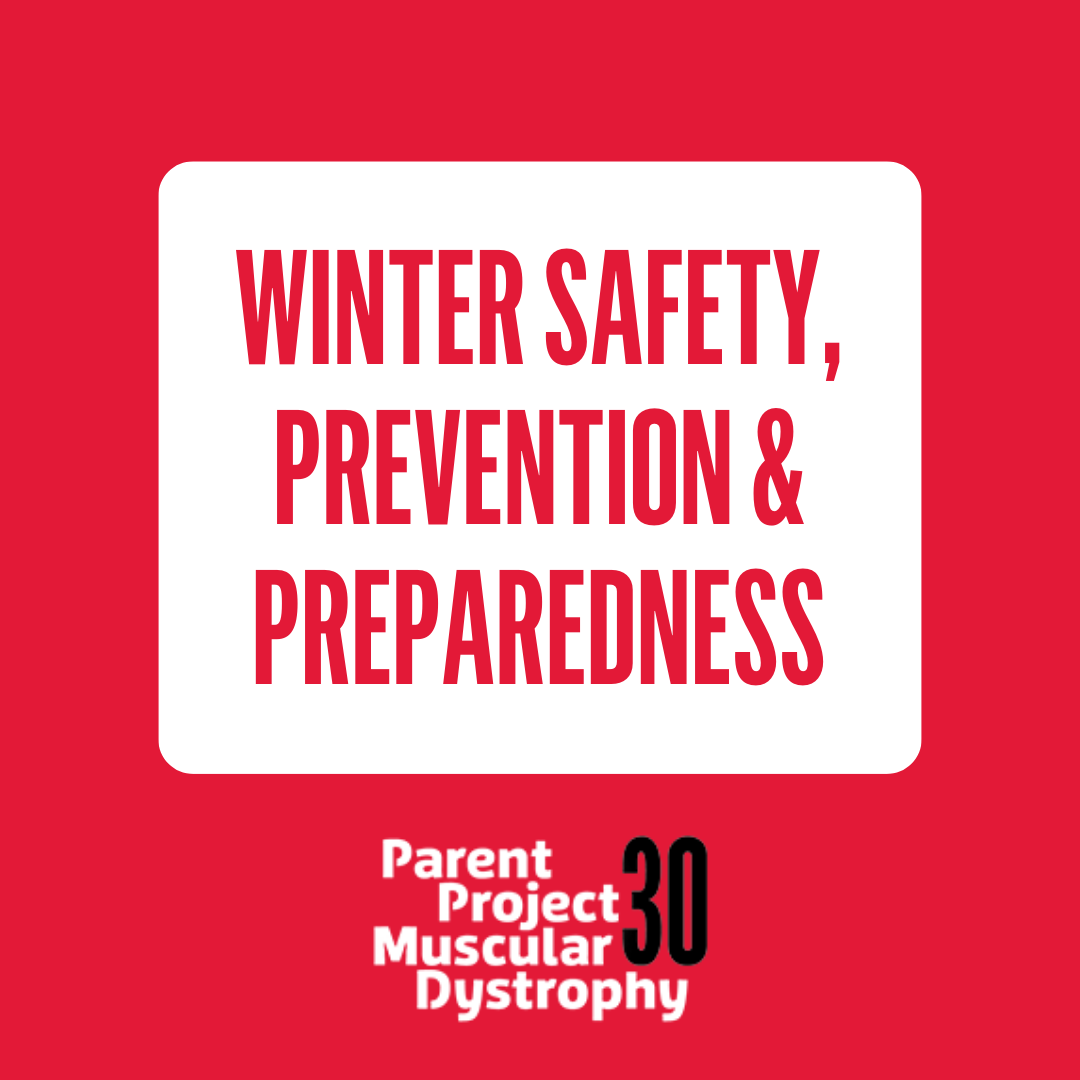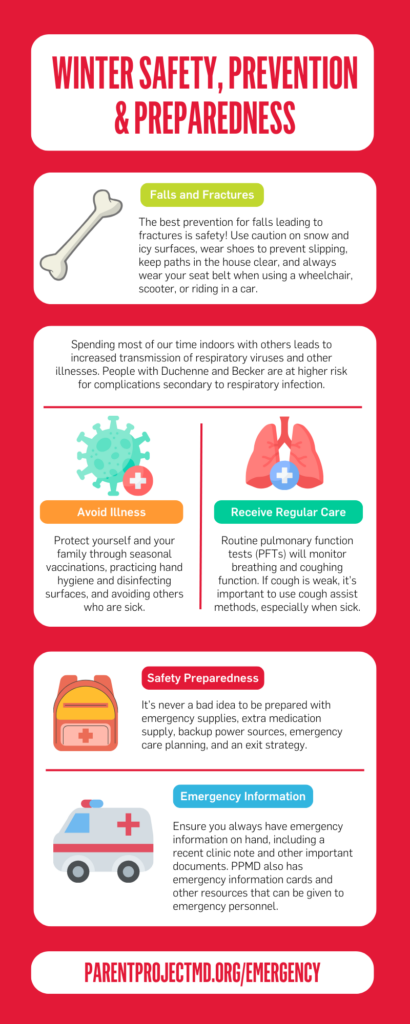
With winter quickly approaching, PPMD wants to remind you about the importance of safety, prevention, and being prepared for potential emergencies such as falls and fractures, acute respiratory illness, and other unpredictable situations.
SAFETY:
Snow and ice can lead to unsafe surfaces, which leads to a higher incidence of falls. Falls are the most common cause of long bone fractures, usually breaking bones in the legs (i.e. femur, tibia, fibula). People living with Duchenne, especially those taking steroids, are at risk for weakened bones (osteoporosis), also making them susceptible to fractures.
Safety is the best way to avoid falls and prevent fractures from happening.
- If your child is ambulatory, it is important to keep shoes on most of the time to avoid slipping, keep paths in your house clear to avoid tripping, and watch for overexertion (it’s always a good idea to take rests).
- If you or your child is not ambulatory, it is important to take precautions while doing transfers to chairs, beds, or in the shower. It is also important to always wear seat belts in wheelchairs, shower chairs and the car.
- Keep in mind that some falls cannot be prevented despite every safety measure you take.
 PREVENTION:
PREVENTION:
Spending most of our time indoors with others leads to increased transmission of respiratory viruses and other illnesses. People living with Duchenne and Becker are at a higher risk for respiratory complications secondary to respiratory infection. This season, it is expected both the flu and COVID-19 will be on the rise, and you can help prevent these illnesses through vaccinating, practicing good hand hygiene and disinfecting surfaces, and avoiding others who are sick.
It is also important to continue yours’ or your child’s regular medical care including:
- Monitor bone health through imaging tests to identify and treat osteoporosis
- Receive regular pulmonary function testing to monitor breathing, including coughing strength. If you or your child has a weakened cough, talk to your doctor about how to assist coughing manually or with a machine to prevent pneumonia or respiratory infection.
- Talk to your primary care provider or neuromuscular specialist to ensure all scheduled vaccinations are up-to-date.
PREPAREDNESS:
As we have learned over the past few years, life can be unpredictable. It’s important to always be prepared for the next “big one,” whether it is a viral outbreak, natural disaster, or unexpected weather. PPMD has created a safety preparedness toolkit which outlines ways you can be better prepared, including preparing an emergency supply pack, ensuring medication supply, backup power sources, emergency care planning, and identifying an exit strategy.
Ensure you always have emergency information on hand, including copies of your most recent clinic note and any other important documents that may be helpful to share with doctors. PPMD also has resources to help in case of an emergency:
- In an emergency, remember to THINK
- Keep a PPMD emergency information card in your wallet, or attach a weatherproof card to your child’s wheelchair, scooter, or backpack to ensure this information is always available
- Make sure you have your neuromuscular team’s contact information accessible, for both during and after office hours



 by: Parent Project Muscular Dystrophy
by: Parent Project Muscular Dystrophy

